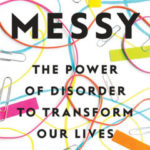Although we’re accustomed to thinking of love primarily in terms of the intense bonds of romance or our ties with family and friends, the simple fact is that “love is connection,” Barbara Fredrickson writes in Love 2.0: How Our Supreme Emotion Affects Everything We Feel, Think, Do, and Become. “Love blossoms anytime two or more people — even strangers — connect over a shared positive emotion, be it mild or strong.”
Fredrickson, whose research as director and principal investigator of the Positive Emotions and Psychophysiology Lab at the University of North Carolina is supported by grants from the National Institutes of Health (NIH), also terms those connections “positivity resonance” — what happens when positive emotions are shared and amplified between people. We’re hardwired to both crave and need those connections, Fredrickson maintains, and a steady diet of a wide range of loving— or positively resonant — moments makes us healthier and lowers our risk of disease.
“Feelings of oneness surface when two or more people ‘sync up’ and literally come to act as one, moving to the same hidden beat,” Fredrickson writes. “You can sync up like this with a stranger just as you can with a lifelong companion.”
Love 2.0 also offers clues to why networking is so highly valued at conferences. “Moments of seemingly shared positivity abound,” Fredrickson writes. “You, and those in your midst, can be infused with one form of positivity or another, yet not be truly connected…. [Y]ou and the person next to you in the lecture hall are fascinated by the same set of ideas; you and your family members take in the same television comedy. Yet absent eye contact, touch, laughter, or another form of behavior synchrony, these moments are akin to what developmental psychologists call parallel play. They no doubt feel great and their positivity confers… benefits both to you and others, independently. But if they are not (yet) directly and interpersonally shared experiences, they do not resonate or reverberate.”
Some might call such shared moments rapport, she writes. “Yet the more I understand the science behind positivity resonance, the more I think this description misleads. Rapport sounds optional, superfluous. Something you’d be just as healthy with or without. Given the vital role that positivity resonance plays in our survival, such states warrant elevation. That’s why I call them love, our supreme emotion. Micro-moments like these are those essential nutrients of which most of us in modern life aren’t getting enough.”



